in-store offers
Books at Fopp
Vintage Classics
The Vintage Classics range is home to some of the greatest writers and thinkers from around the world and across the ages. Bringing you not just the books you already know and love – books that are a proud part of our legacy – but also those that are rediscovered and reintroduced; works that still capture the imagination, inspire new perspectives and incite curiosity. We’re offering this phenomena range for just £4 each or 2 for £7, let’s take a look at some of the authors in the offer and their essential works.

Aldous Huxley
Aldous Huxley was an English writer and intellectual born in Surrey in 1894. He was a member of a prominent family of writers and scientists. He studied at Eton and later at Balliol College, Oxford, where he earned a degree in English literature. Huxley started his career as a writer in the 1920s and published several novels, including “Crome Yellow” (1921) and “Antic Hay” (1923). He gained international fame with his dystopian novel “Brave New World” (1932), which portrayed a society controlled by science and technology. Throughout his career, Huxley explored different philosophical and religious ideas, which he later incorporated into his writing. In the 1950s, he became interested in mystical experiences and experimented with psychedelic drugs, which he described in his book “The Doors of Perception” (1954) Huxley’s legacy is one of thought-provoking literature that continues to inspire readers today. He died in 1963, just a few hours after the assassination of President John F. Kennedy.
Brave New World
Welcome to New London. Everybody is happy here. Our perfect society achieved peace and stability through the prohibition of monogamy, privacy, money, family and history itself. Now everyone belongs. You can be happy too. All you need to do is take your Soma pills. Discover the brave new world of Aldous Huxley’s classic novel, written in 1932, which prophesied a society which expects maximum pleasure and accepts complete surveillance – no matter what the cost.
The Doors of Perception
In 1953, in the presence of an investigator, Aldous Huxley took four-tenths of a gram of mescalin, sat down and waited to see what would happen. When he opened his eyes everything, from the flowers in a vase to the creases in his trousers, was transformed. Huxley described his experience with breathtaking immediacy in The Doors of Perception.
 Angela Carter
Angela Carter
Angela Carter was a British writer known for her unique and provocative works that challenged traditional gender roles and explored themes of feminism, sexuality, and identity. Born in 1940 in Sussex, England, Carter grew up in a family of journalists and writers. She studied English literature at the University of Bristol and later worked as a journalist, including a stint as a television critic for The Guardian. Carter was known for her imaginative writing, which often incorporated elements of magical realism, gothic horror, and surrealism. Her works include novels, short stories, essays, and radio plays, and she was also a highly regarded literary critic.
Nights at the Circus
Is Sophie Fevvers, toast of Europe’s capitals, part swan…or all fake? Courted by the Prince of Wales and painted by Toulouse-Lautrec, she is an aerialiste extraordinaire and star of Colonel Kearney’s circus. She is also part woman, part swan. Jack Walser, an American journalist, is on a quest to discover the truth behind her identity. Dazzled by his love for her, and desperate for the scoop of a lifetime, Walser has no choice but to join the circus on its magical tour through turn-of-the-nineteenth-century London, St Petersburg and Siberia.
Expletives Deleted: Selected Writings
Angela Carter was one of the most important and influential writers of our time: a novelist of extraordinary power and a searching critic and essayist. This selection of her writing, which she made herself, covers more than a decade of her thought and ranges over a diversity of subjects giving a true measure of the wide focus of her interests: the brothers Grimm; William Burroughs; food writing, Elizbaeth David; British writing: American writing; sexuality, from Josephine Baker to the history of the corset; and appreciations of the work of Joyce and Christina Stead.
 Ernest Hemingway
Ernest Hemingway
Ernest Hemingway (1899-1961) was an American novelist, short story writer, and journalist. He was born in Oak Park, Illinois, and began his writing career as a journalist for the Kansas City Star. He served as an ambulance driver in World War I and later became a foreign correspondent in Paris. Hemingway’s writing style is characterized by simplicity and clarity, often using short, declarative sentences. His novels and short stories frequently explored themes of masculinity, war, and death, and are often set in exotic locales. His best-known works include The Sun Also Rises, A Farewell to Arms, and The Old Man and the Sea, for which he was awarded the Nobel Prize in Literature in 1954. Hemingway struggled with depression and alcoholism throughout his life, and tragically took his own life in 1961, however, his literary legacy continues to influence writers around the world.
For Whom the Bell Tolls
High in the pine forests of the Spanish Sierra, a guerrilla band prepares to blow up a vital bridge. Robert Jordan, a young American volunteer, has been sent to handle the dynamiting. There, in the mountains, he finds the dangers and the intense comradeship of war. And there he discovers Maria, a young woman who has escaped from Franco’s rebels.
A Farewell to Arms
In 1918 Ernest Hemingway went to war. He volunteered for ambulance service in Italy, was wounded and twice decorated. Out of his experience came A Farewell to Arms. Hemingway’s unforgettable book recreates the fear, the courage and the comradeship of warfare with total conviction. But A Farewell to Arms is not only a novel of war, it is also a love story of immense drama and uncompromising passion.
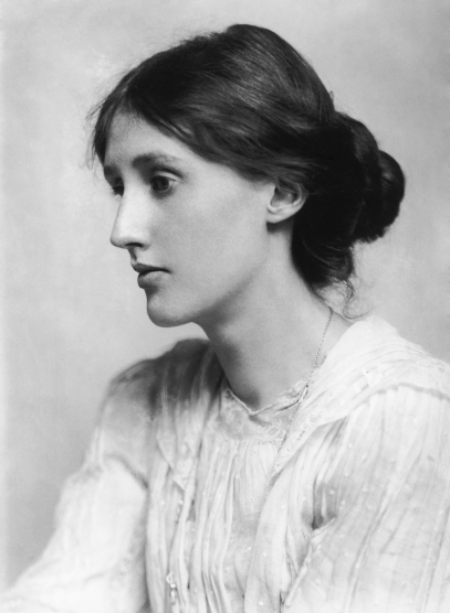
Virginia Woolf
Virginia Woolf (1882-1941) was an English novelist, essayist, and feminist writer. She was born in London, and was raised in a literary and intellectual family. Woolf’s writing often explored the inner lives of women, and her works are known for their innovative narrative techniques. Woolf’s best-known works include the novels Mrs. Dalloway, To the Lighthouse, and Orlando, as well as the essay collections A Room of One’s Own and Three Guineas. She was a central figure in the Bloomsbury Group, a circle of writers, artists, and intellectuals who were active in the early 20th century. Throughout her life, Woolf struggled with mental illness, and in 1941 she took her own life by drowning herself in the River Ouse. Woolf continues to influence writers and feminist thinkers around the world, and she is widely regarded as one of the greatest writers of the 20th century.
The Waves
The Waves is an astonishingly beautiful and poetic novel. It begins with six children playing in a garden by the sea and follows their lives as they grow up and experience friendship, love and grief at the death of their beloved friend Percival. Regarded by many as her greatest work, The Waves is also seen as Virginia Woolf’s response to the loss of her brother Thoby, who died when he was twenty-six.
To the Lighthouse
The serene and maternal Mrs Ramsay, the tragic yet absurd Mr Ramsay, together with their children and assorted guests, are holidaying on the Isle of Skye. From the seemingly trivial postponement of a visit to a nearby lighthouse Virginia Woolf constructs a remarkable and moving examination of the complex tensions and allegiances of family life. One of the great literary achievements of the twentieth century, To the Lighthouse is often cited as Virginia Woolf’s most popular novel.
 Kurt Vonnegut
Kurt Vonnegut
Kurt Vonnegut (1922-2007) was an American writer known for his satirical and anti-war novels. He was born in Indianapolis, Indiana, and served in World War II as an infantryman, an experience that heavily influenced his writing. Vonnegut’s best-known works include Slaughterhouse-Five, Cat’s Cradle, and Breakfast of Champions, in which he used science fiction and dark humor to criticize war, capitalism, and other societal issues. Vonnegut was known for his unique writing style, which combined absurdity and humor with social commentary. He often used recurring characters and motifs in his works, and his writing explored themes such as the destructive nature of war and the human condition. Vonnegut passed away in 2007 at the age of 84.
Breakfast of Champions
In a frolic of cartoon and comic outbursts against rule and reason, a miraculous weaving of science fiction, memoir, parable, fairy tale and farce, Kurt Vonnegut attacks the whole spectrum of American society, releasing some of his best-loved literary creations on the scene.
Slaughterhouse 5
Billy Pilgrim – hapless barber’s assistant, successful optometrist, alien abductee, senile widower and soldier – has become unstuck in time. Hiding in the basement of a slaughterhouse in Dresden, with the city and its inhabitants burning above him, he finds himself a survivor of one of the most deadly and destructive battles of the Second World War. But when, exactly? How did he get here? And how does he get out? Travel through time and space on the shoulders of Vonnegut himself. This is a book about war. Listen to what he has to say: it is of the utmost urgency.
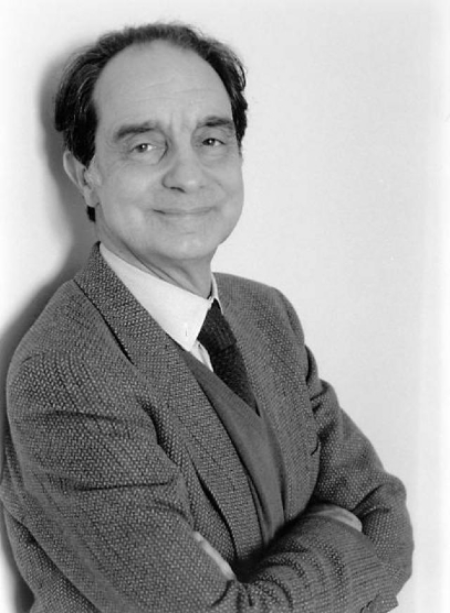
Italo calvino
Italo Calvino (1923-1985) was an Italian writer and journalist. He was born in Cuba to Italian parents, and later moved to Italy where he studied literature at the University of Turin. Calvino’s writing is known for its fantastical and experimental elements, as well as its exploration of philosophical and scientific concepts. Calvino received numerous awards for his writing, including the prestigious French literary prize, the Prix Médicis étranger, and he is widely regarded as one of the most important Italian writers of the 20th century. Despite passing away in 1985 at the age of 61, Calvino’s memory lives on through his creative genius.
Invisible Cities
In Invisible Cities Marco Polo conjures up cities of magical times for his host, the Chinese ruler Kublai Khan, but gradually it becomes clear that he is actually describing one city: Venice. As Gore Vidal wrote ‘Of all tasks, describing the contents of a book is the most difficult and in the case of a marvellous invention like Invisible Cities, perfectly irrelevant.’
If on a Winter’s Night a Traveller
You go into a bookshop and buy If on a Winter’s Night a Traveller by Italo Calvino. You like it. But alas there is a printer’s error in your copy. You take it back to the shop and get a replacement. But the replacement seems to be a totally different story. You try to track down the original book you were reading but end up with a different narrative again. This remarkable novel leads you through many different books including a detective adventure, a romance, a satire, an erotic story, a diary and a quest. But the real hero is you, the reader.
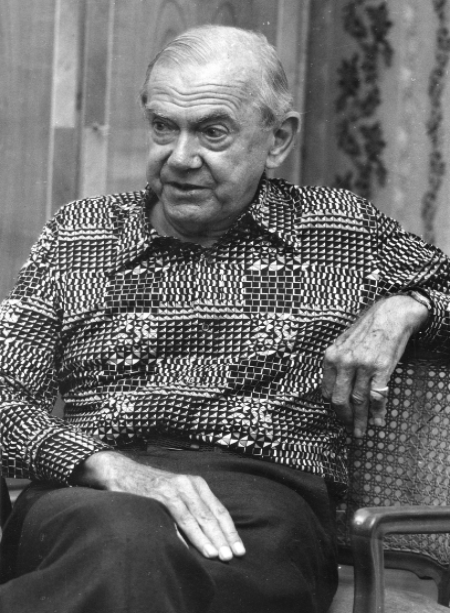
Graham Greene
Graham Greene (1904-1991) was an English writer and playwright. He was born in Berkhamsted, England, and was educated at Oxford University. Greene’s writing explored themes of morality, politics, and religion, often drawing from his experiences as a traveler and journalist. In addition to his writing, Greene was involved in politics, working as a British spy during World War II and later criticizing British colonialism in his writing. He was also a convert to Catholicism, and his faith often influenced his writing. Greene received numerous awards for his writing, including the Order of Merit, the highest civilian honor in the UK. He was also shortlisted for the Nobel Prize in Literature on several occasions.
Brighton Rock
A gang war is raging through the dark underworld of Brighton. Seventeen-year-old Pinkie, malign and ruthless, has killed a man. Believing he can escape retribution, he is unprepared for the courageous, life-embracing Ida Arnold. Greene’s gripping thriller exposes a world of loneliness and fear, of life lived on the ‘dangerous edge of things.’
Our Man In Havana
Wormold is a vacuum cleaner salesman in a city of power cuts. His adolescent daughter spends his money with a skill that amazes him, so when a mysterious Englishman offers him an extra income he’s tempted. In return all he has to do is carry out a little espionage and file a few reports. But when his fake reports start coming true, things suddenly get more complicated and Havana becomes a threatening place.
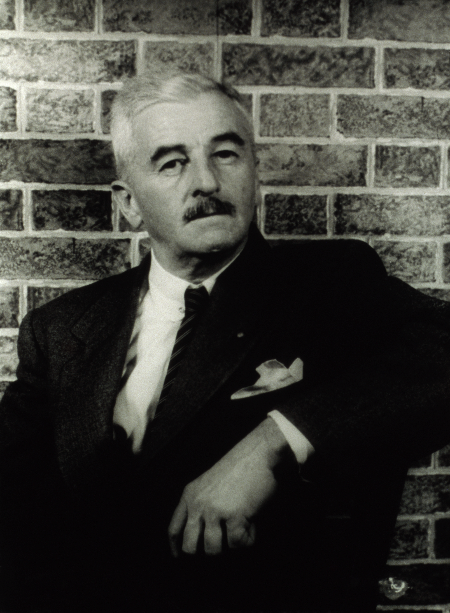
William Faulkner
William Faulkner (1897-1962) was an American writer and Nobel Prize laureate. He was born in New Albany, Mississippi and spent most of his life in Oxford, Mississippi, where he wrote many of his most famous works. Faulkner’s writing explored the complexities of the American South, and his works often dealt with issues of race, class, and the legacy of slavery. Faulkner received numerous awards for his writing, including the Nobel Prize in Literature in 1949, and he is widely regarded as one of the greatest American writers of the 20th century. Throughout his life, Faulkner struggled with alcoholism and financial difficulties, but he continued to write prolifically until his death in 1962.
As I Lay Dying
The death and burial of Addie Bundren is told by members of her family, as they cart the coffin to Jefferson, Mississippi, to bury her among her people. And as the intense desires, fears and rivalries of the family are revealed in the vernacular of the Deep South, Faulkner presents a portrait of extraordinary power – as epic as the Old Testament, as American as Huckleberry Finn.
The Sound and the Fury
Ever since the first furore was created on its publication in 1929, The Sound and the Fury has been considered one of the key novels of this century. Depicting the gradual disintegration of the Compson family through four fractured narratives, the novel explores intense, passionate family relationships where there is no love, only self-centredness. At its heart, this is a novel about lovelessness – ‘only an idiot has no grief; only a fool would forget it. What else is there in this world sharp enough to stick to your guts?’

F. Scott Fitzgerald
F. Scott Fitzgerald (1896-1940) was an American novelist and short story writer. He was born in St. Paul, Minnesota, and attended Princeton University, where he began writing and developed a love for literature. Fitzgerald’s writing explored the decadence and excess of the Jazz Age, a period of cultural and social change in the 1920s. Fitzgerald passed away in 1940 at the age of 44, but his work continues to be celebrated and adapted for film and television.
The Great gatsby
Jay Gatsby is the man who has everything. But one thing will always be out of his reach … Everybody who is anybody is seen at his glittering parties. Day and night his Long Island mansion buzzes with bright young things drinking, dancing and debating his mysterious character. For Gatsby – young, handsome, fabulously rich – always seems alone in the crowd, watching and waiting, though no one knows what for. Beneath the shimmering surface of his life he is hiding a secret: a silent longing that can never be fulfilled. And soon this destructive obsession will force his world to unravel.
The Beautiful and the Damned
Anthony and Gloria are the essence of Jazz Age glamour. A brilliant and magnetic couple, they fling themselves at life with an energy that is thrilling. New York is a playground where they dance and drink for days on end. Their marriage is a passionate theatrical performance; they are young, rich, alive and lovely and they intend to inherit the earth. But as money becomes tight, their marriage becomes impossible. And with their inheritance still distant, Anthony and Gloria must grow up and face reality; they may be beautiful but they are also damned.
 John Williams
John Williams
John Williams (1922-1994) was an American author and professor of English literature. He was born in Texas and studied at the University of Denver and the University of Missouri. Williams’ best-known novel, Stoner, was originally published in 1965 but gained widespread acclaim in the 21st century. In addition to his writing, Williams was a professor of English at the University of Denver, where he taught for many years. He was also a prolific writer of poetry and criticism, and his work was widely respected by his colleagues and contemporaries. Despite the critical acclaim for his work, Williams remained relatively unknown to the general public until the rediscovery of Stoner in the 21st century. He passed away in 1994 at the age of 71, but his literary legacy continues to be celebrated and studied by readers and scholars around the world.
Stoner
William Stoner enters the University of Missouri at nineteen to study agriculture. A seminar on English literature changes his life, and he never returns to work on his father’s farm. Stoner becomes a teacher. He marries the wrong woman. His life is quiet, and after his death, his colleagues remember him rarely. Yet with truthfulness, compassion and intense power, this novel uncovers a story of universal value – of the conflicts, defeats and victories of the human race that pass unrecorded by history – and in doing so reclaims the significance of an individual life.
Butcher’s Crossing
Will Andrews is no academic. He longs for wildness, freedom, hope and vigour. He leaves Harvard and sets out for the West to discover a new way of living. In a small town called Butcher’s Crossing he meets a hunter with a story of a lost herd of buffalo in a remote Colorado valley, just waiting to be taken by a team of men brave and crazy enough to find them. Will makes up his mind to be one of those men, but the journey, the killing, harsh conditions and sheer hard luck will test his mind and body to their limits.
 Raymond Carver
Raymond Carver
Raymond Carver (1938-1988) was an American short story writer and poet known for his minimalist style and realistic depictions of working-class life. He was born in Clatskanie, Oregon and worked a variety of blue-collar jobs before pursuing writing full-time. His writing often explored themes of addiction, dysfunctional relationships, and the struggles of working-class Americans. Carver has had a lasting impact on American literature, and his spare, realistic style has been emulated by many writers since his death. His work has also been heavily adapted for film and television.
What We Talk About When We Talk About Love
This powerful collection of stories, set in the mid-West among the lonely men and women who drink, fish and play cards to ease the passing of time, was the first by Raymond Carver to be published in the UK. With its spare, colloquial narration and razor-sharp sense of how people really communicate, the collection was to become one of the most influential literary works of the 1980s.
Fires
Fires is the best introduction to the full range and humanity of Carver’s writing. It contains four essays, including a moving memoir od his father’s working life in the saw-mills of the Pacific Northwest, a tribute to his mentor John Gardner, and the title essay about the influences on his writing life; fifty poems, many of them not collected elsewhere; and seven stories, including three from the early collection Furious Seasons.
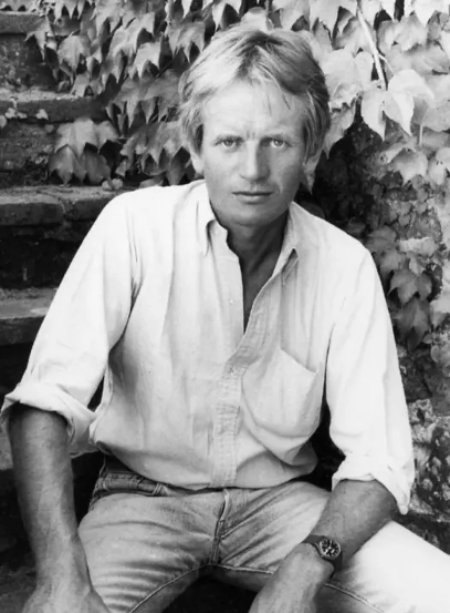
Bruce Chatwin
Bruce Chatwin (1940-1989) was a British writer and travelogue author. He was born in Sheffield, England and attended the University of Edinburgh. His writing often blended travelogue with personal memoir and explored themes of nomadism, mythology, and the human condition. In addition to his writing, Chatwin worked as a journalist and art auctioneer, and he was widely regarded as a cultured and intellectually curious individual. He was also openly bisexual and had several relationships with both men and women throughout his life. Chatwin passed away in 1989 at the age of 48 from complications related to AIDS.
In Patagonia
Bruce Chatwin sets off on a journey through South America in this wistful classic travel book With its unique, roving structure and beautiful descriptions, In Patagonia offers an original take on the age-old adventure tale. Bruce Chatwin’s journey to a remote country in search of a strange beast brings along with it a cast of fascinating characters. Their stories delay him on the road, but will have you tearing through to the book’s end.
On the Black Hill
On the Black Hill is an elegantly written tale of identical twin brothers who grow up on a farm in rural Wales and never leave home. They till the rough soil and sleep in the same bed, touched only occasionally by the advances of the twentieth century. In depicting the lives of Benjamin and Lewis and their interactions with their small local community Chatwin comments movingly on the larger questions of human experience.
 Jules Verne
Jules Verne
Jules Verne (1828-1905) was a French novelist, poet, and playwright, best known for his adventure novels such as Journey to the Center of the Earth, Twenty Thousand Leagues Under the Sea, and Around the World in Eighty Days. He was born in Nantes, France and began writing as a teenager. Verne’s writing often focused on themes of exploration, technology, and the possibilities of science, and his works were hugely popular during his lifetime. He is often considered one of the fathers of science fiction. In addition to his writing, Verne worked as a stockbroker and traveled extensively throughout Europe, gathering inspiration for his novels. He remains one of the most influential and beloved writers in the history of science fiction and adventure literature.
Twenty Thousand Leagues Under the Sea
From the father of Science Fiction we have an adventure classic of deep-sea volcanoes, giant squid and the renegade scientist Captain Nemo. Professor Aronnax embarks on an expedition to hunt down and destroy a menacing sea monster. However, he discovers that the beast is metal – it is a giant submarine called the Nautilus built by the renegade scientist Captain Nemo. So begins an underwater adventure that takes them from the South Pole to the submerged lost city of Atlantis.
Journey to the Centre of the Earth
After decoding a scrap of paper in runic script, the intrepid Professor Lidenbrock and his nervous nephew Axel travel across Iceland to find the secret passage to the centre of the earth. Enlisting the silent Hans as a guide, the trio encounter a perilous and astonishing subterranean world of natural hazards, curious sights, prehistoric beasts and sea monsters.
 yukio mishima
yukio mishima
Yukio Mishima (1925-1970) was a Japanese author, playwright, and actor. He was born in Tokyo, Japan and began writing at a young age. Mishima’s work often explored themes of traditional Japanese culture, masculinity, and death, and he was known for his highly stylized prose and intricate plots. In addition to his writing, Mishima was a prominent political activist and nationalist. He founded his own private army and staged a failed coup attempt in 1970, after which he committed ritual suicide by seppuku. Mishima’s death shocked the literary world and cemented his status as a cult figure in Japan and beyond. His work continues to be widely read and studied around the world, and his uncompromising vision of Japanese identity and culture has had a lasting impact on Japanese literature and society.
The Sailor who Fell from Grace with the Sea
A band of savage thirteen-year-old boys reject the adult world as illusory, hypocritical, and sentimental, and train themselves in a brutal callousness they call ‘objectivity’. When the mother of one of them begins an affair with a ship’s officer, he and his friends idealise the man at first; but it is not long before they conclude that he is in fact soft and romantic. They regard this disallusionment as an act of betrayal on his part – and the retribution is deliberate and horrifying.
Thirst for Love
After the early death of her philandering husband, Etsuko moves into her father-in-law’s house, where she numbly submits to the old man’s advances. But soon she finds herself in love with the young servant Saburo. Tormented by his indifference, yet invigorated by her desire, she makes her move, with catastrophic consequences.
 John Fowles
John Fowles
John Fowles (1926-2005) was an English novelist and essayist. He was born in Leigh-on-Sea, England and attended Oxford University. Fowles’s best-known works include The Collector, The Magus, and The French Lieutenant’s Woman, all of which explored themes of obsession, power, and the complexities of human relationships. His writing often defied conventional genre classifications, blending elements of realism, metafiction, and postmodernism.
The Magus
On a remote Greek Island, Nicholas Urfe finds himself embroiled in the deceptions of a master trickster. As reality and illusion intertwine, Urfe is caught up in the darkest of psychological games. John Fowles expertly unfolds a tale that is lush with over-powering imagery in a spellbinding exploration of human complexities. By turns disturbing, thrilling and seductive, The Magus is a feast for the mind and the senses.
The Collector
Withdrawn, uneducated and unloved, Frederick collects butterflies and takes photographs. He is obsessed with a beautiful stranger, the art student Miranda. When he wints the pools he buys a remote sussex house and calmly adducts Miranda, believing she will grow to love him in time. Along and desperate, Miranda must struggle to overcome her own prejudices and contempt if she is to understand her captor, and so gain her freedom

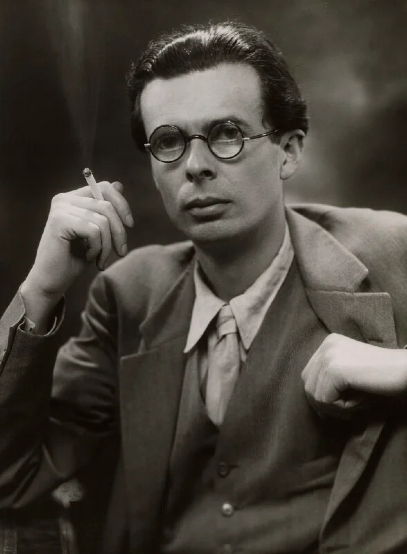
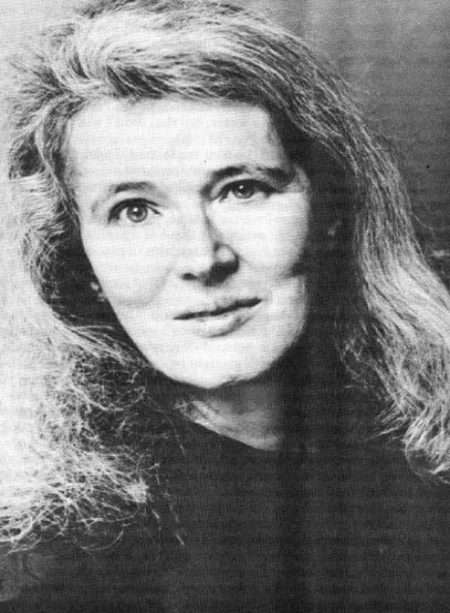 Angela Carter
Angela Carter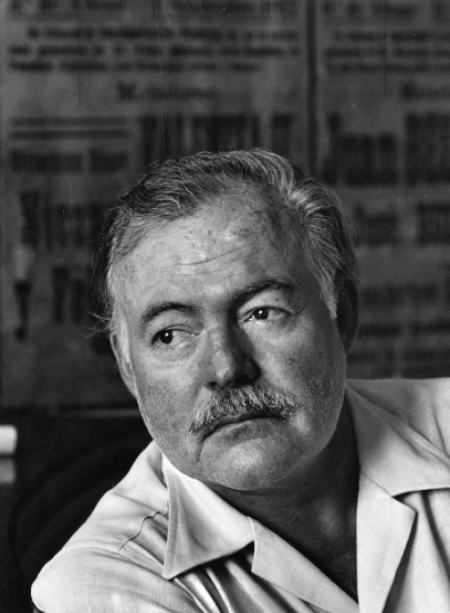 Ernest Hemingway
Ernest Hemingway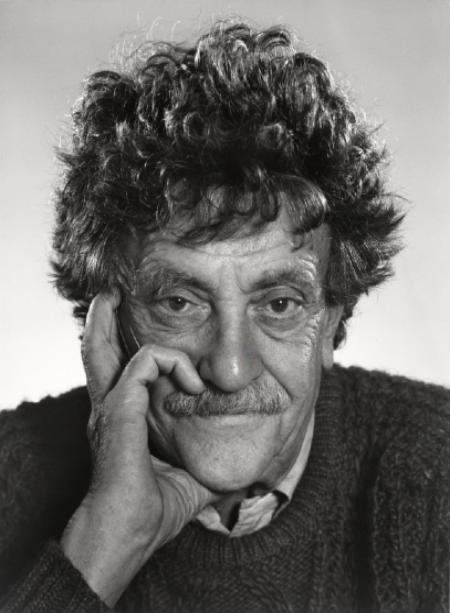 Kurt Vonnegut
Kurt Vonnegut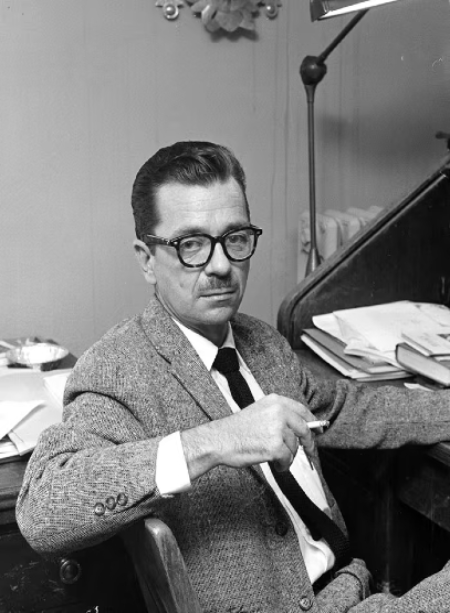 John Williams
John Williams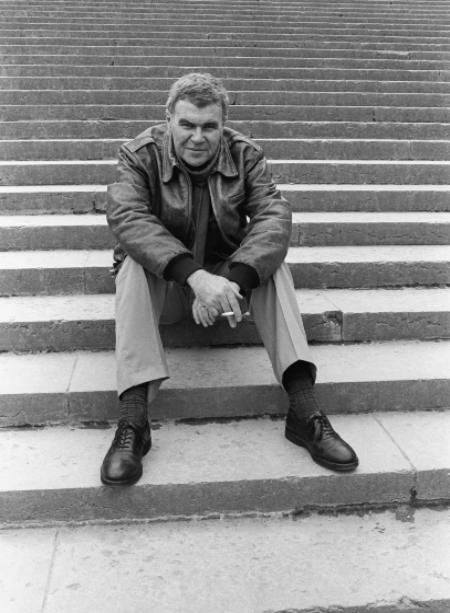 Raymond Carver
Raymond Carver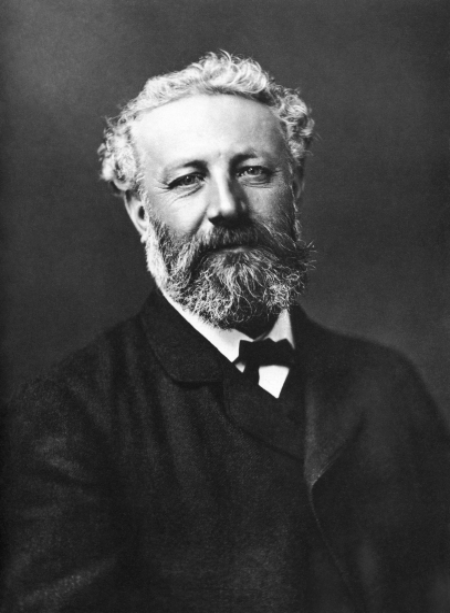 Jules Verne
Jules Verne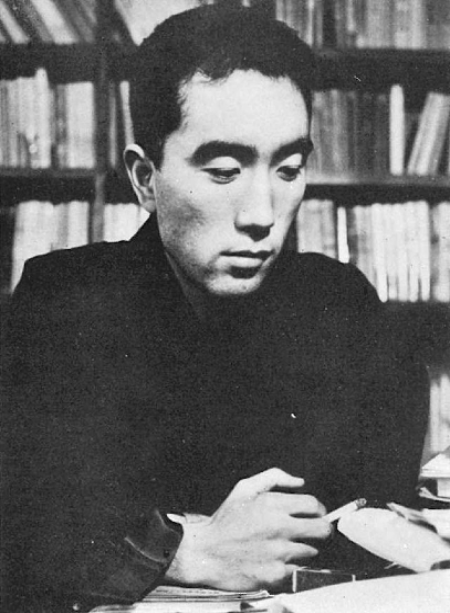 yukio mishima
yukio mishima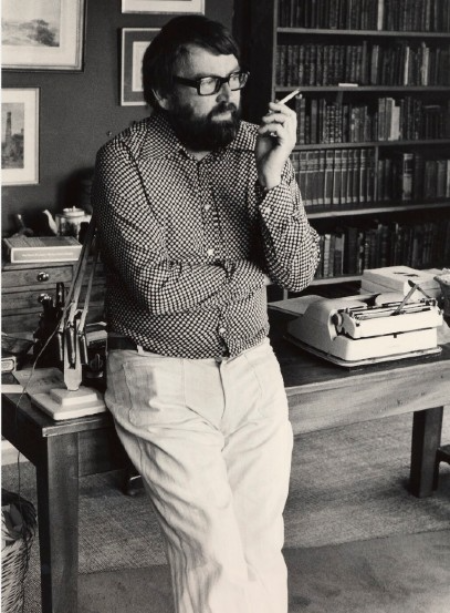 John Fowles
John Fowles